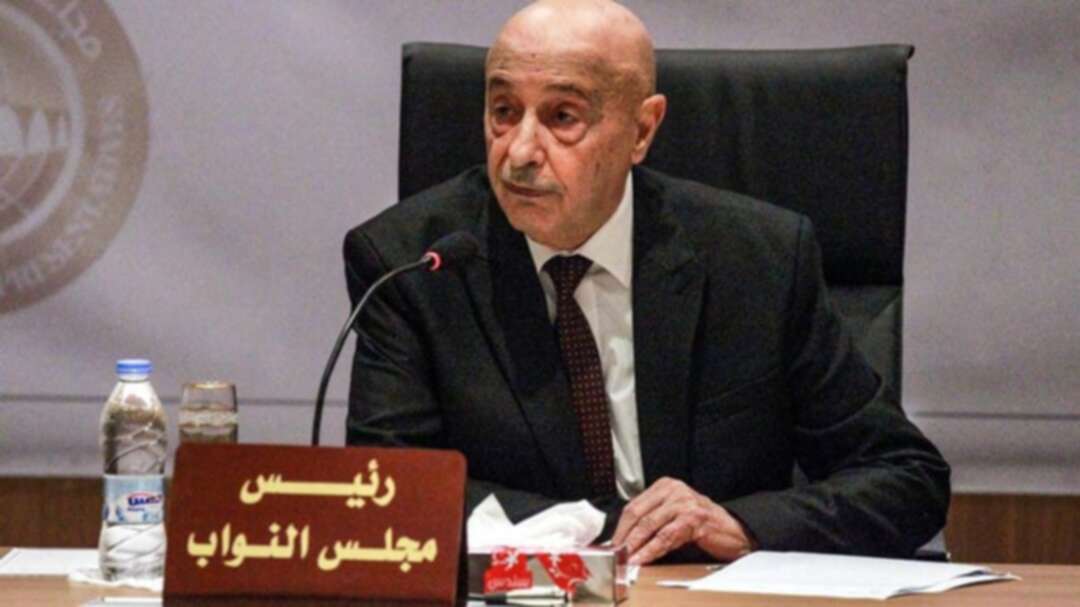-
Libyan official says Turkish troops are unwanted, destabilizing

Turkey’s willingness to send troops to Libya is “unacceptable,” and the country’s actions are increasing tensions and destabilizing the wider region, said Aguila Saleh, the speaker of Libya’s eastern-based parliament, in a joint statement with his Cypriot counterpart.
Saleh made his comments following a meeting with Demetris Syllouris, the head of the Cypriot parliament, to discuss the UN-recognized Libyan government’s increasingly close military ties with Turkey.
The Libyan politician went on to urge Cyprus to withdraw its recognition of the Tripoli-based Government of National Accord (GNA), as it has “lost its legitimacy and wants to sell Libya to foreigners,” Saleh’s adviser told AFP in Benghazi.
Saleh and Syllouris also discussed how to counter two agreements which the GNA signed with Turkey last month.
The first is a military deal which allows Turkey to send in military forces into Libya, which Turkish officials have said may begin as early as next month.
Turkish President Recep Tayyip Erdogan, “sent in the past unmanned areal vehicles and armored vehicles, different types of weapons and has recently announced that he would send troops to fight in Libya,” Saleh said, according to AP.
Erdogan’s aim, according to Saleh, “is to provoke countries in the eastern Mediterranean and to interfere in their exclusive economic zones without taking account these countries’ sovereign rights at sea and in the air.”
According to the United Nations, Turkey has already supplied military equipment to forces loyal to the GNA, including tanks and drones.
The second is a maritime agreement which gives Turkey economic rights to a large portion of the eastern Mediterranean sea. Turkey signed an accord with Fayez al-Sarraj, the GNA’s leader, last month that seeks to create an exclusive economic zone from Turkey’s southern Mediterranean shore to Libya’s northeast coast.
Greece and Cyprus, which have long had maritime and territorial disputes with Turkey, say the accord is void and violates the international law of the sea. They see it as a cynical resource-grab designed to scupper the development of East Mediterranean gas and destabilize rivals.
Saleh and Syllouris reiterated this condemnation. They called the agreement, which was passed by Libya’s Tripoli-based government but not ratified by the Libyan parliament, a “flagrant violation of international law that’s devoid of any legal basis,” AP reported.
Greece has expelled Libya’s ambassador in Athens and filed a complaint with the United Nations. Cyprus, where the northern part of the island is held by Turkey, has raised its own objections. At a December 12 summit, EU leaders issued a statement “unequivocally” siding with member states Greece and Cyprus.
Egypt and Israel, which have invested heavily in energy exploration in the region, are alarmed by the Turkey-Libya move, which may threaten their ability to export gas to Europe. Egypt has called it “illegal and not binding,” while Israel has said it could “jeopardize peace and stability in the area.”
With agencies
You May Also Like
Popular Posts
Caricature
BENEFIT Sponsors BuildHer...
- April 23, 2025
BENEFIT, the Kingdom’s innovator and leading company in Fintech and electronic financial transactions service, has sponsored the BuildHer CityHack 2025 Hackathon, a two-day event spearheaded by the College of Engineering and Technology at the Royal University for Women (RUW).
Aimed at secondary school students, the event brought together a distinguished group of academic professionals and technology experts to mentor and inspire young participants.
More than 100 high school students from across the Kingdom of Bahrain took part in the hackathon, which featured an intensive programme of training workshops and hands-on sessions. These activities were tailored to enhance participants’ critical thinking, collaborative problem-solving, and team-building capabilities, while also encouraging the development of practical and sustainable solutions to contemporary challenges using modern technological tools.
BENEFIT’s Chief Executive Mr. Abdulwahed AlJanahi, commented: “Our support for this educational hackathon reflects our long-term strategic vision to nurture the talents of emerging national youth and empower the next generation of accomplished female leaders in technology. By fostering creativity and innovation, we aim to contribute meaningfully to Bahrain’s comprehensive development goals and align with the aspirations outlined in the Kingdom’s Vision 2030—an ambition in which BENEFIT plays a central role.”
Professor Riyadh Yousif Hamzah, President of the Royal University for Women, commented: “This initiative reflects our commitment to advancing women in STEM fields. We're cultivating a generation of creative, solution-driven female leaders who will drive national development. Our partnership with BENEFIT exemplifies the powerful synergy between academia and private sector in supporting educational innovation.”
Hanan Abdulla Hasan, Senior Manager, PR & Communication at BENEFIT, said: “We are honoured to collaborate with RUW in supporting this remarkable technology-focused event. It highlights our commitment to social responsibility, and our ongoing efforts to enhance the digital and innovation capabilities of young Bahraini women and foster their ability to harness technological tools in the service of a smarter, more sustainable future.”
For his part, Dr. Humam ElAgha, Acting Dean of the College of Engineering and Technology at the University, said: “BuildHer CityHack 2025 embodies our hands-on approach to education. By tackling real-world problems through creative thinking and sustainable solutions, we're preparing women to thrive in the knowledge economy – a cornerstone of the University's vision.”
opinion
Report
ads
Newsletter
Subscribe to our mailing list to get the new updates!






















